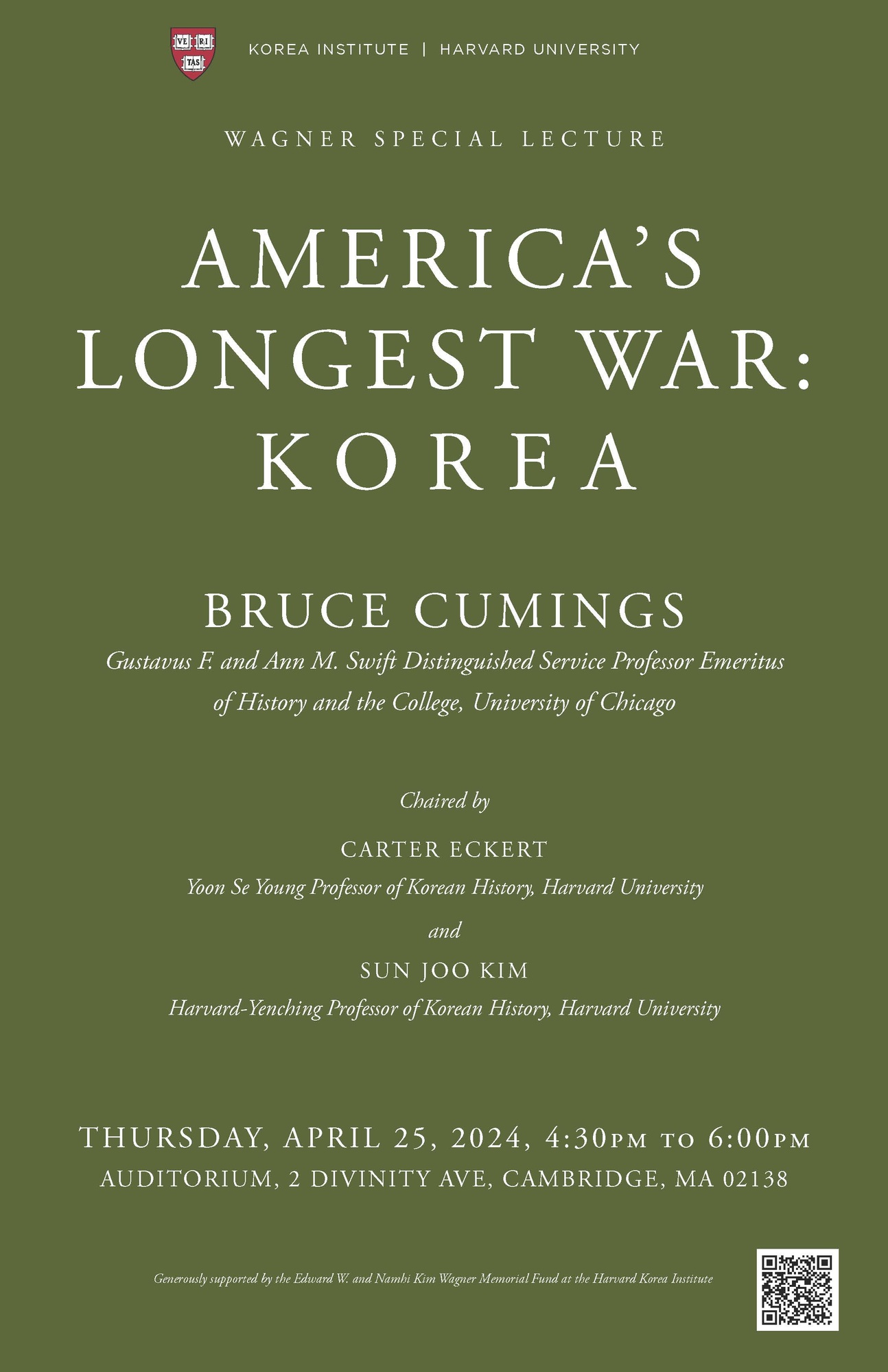Date:
Location:
Wagner Special Lecture
Bruce Cumings
Gustavus F. and Ann M. Swift Distinguished Service Professor Emeritus of History and the College, University of Chicago
Bruce Cumings teaches modern Korean history, international history, and East Asian political economy at the University of Chicago, where he has taught since 1987 and where he is the Gustavus F. and Ann M. Swift Distinguished Service Professor. He is the author of the two-volume study, The Origins of the Korean War (Princeton University Press, 1981, 1990), the first volume of which won the John King Fairbank book award of the American Historical Association. The second volume won the Quincy Wright book award of the International Studies Association. He published War and Television in 1992 (Verso and Visal-Routledge), which was runner-up for the George Orwell book award. Also Korea's Place in the Sun: A Modern History (W. W. Norton, 1997; updated ed. 2005), which was runner-up for the Kiriyama Pacific Rim book award; Parallax Visions: Making Sense of American-East Asian Relations (Duke University Press, 1999; paperback 2002); North Korea: Another Country (New Press, 2003); co-author of Inventing the Axis of Evil (New Press, 2004); Dominion From Sea to Sea: Pacific Ascendancy and American Power (Yale University Press, 2009. This book was listed as one of the top 25 books of 2009 by The Atlantic). The Random House Modern Library published his short book, The Korean War, on the war’s 60th anniversary in 2010.
Chaired by Carter Eckert, Yoon Se Young Professor of Korean History, Harvard University and Sun Joo Kim, Harvard-Yenching Professor of Korean History, Harvard University
Abstract:
Korean War has never ended, and that it was first envisioned in 1945 when the US sent 25,000 combat troops to occupy southern Korea. It still has 28,000 troops there today but now faces a nuclear armed North. Professor Cumings will focus on the conclusion of conventional combat in 1953, which occurred under the shadow of American nuclear blackmail, presaging the placing of American nuclear weapons in South Korea in 1958, and inaugurating a long term policy down to the present of threatening North Korea with nuclear weapons, which it never possessed until 2006.
***
To attend this online event, please register here.
Generously supported by the Edward W. and Namhi Kim Wagner Memorial Fund at the Harvard Korea Institute